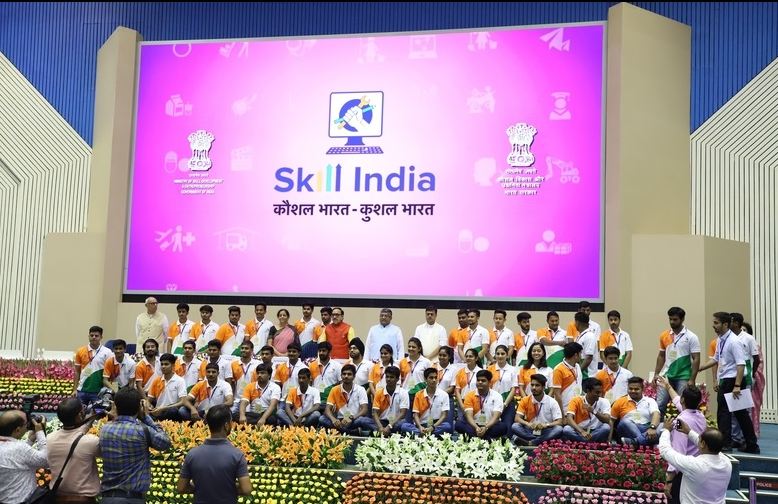



The Ministry of Skill Development and Entrepreneurship (MSDE) and the World Economic Forum (WEF) have launched the India Skills Accelerator initiative to address the skills gap in India. The initiative aims to close skill gaps, encourage investment, strengthen government-industry partnerships, and prepare the workforce for the future.

Copyright infringement not intended
Picture Courtesy: DECCANHERALD
The Ministry of Skill Development and Entrepreneurship (MSDE), in collaboration with the World Economic Forum (WEF), held a high-level roundtable discussion on the "India Skills Accelerator" initiative in New Delhi.
India faces a serious problem: the skills of young people do not match what modern industries need. This "skill gap" is getting wider because technology and businesses change very fast.
The "India Skills Accelerator Initiative" aims to fix this skill gap and prepare the workforce for the future.
Close Skill Gaps to provide people with the right training to match what industries need.
Get More Investment to encourage more money to flow into training programs that help people learn new skills throughout their lives.
Strengthen Government-Industry Partnership so that training programs truly meet business needs.
Helps workers move smoothly into new jobs or even different types of work.
Connect Education to Industry Needs to ensure that what students learn in schools and colleges prepares them for real jobs.
Inclusive Upskilling & Reskilling => Improving current skills to do job better and learning new skills for a different job or industry.
Investment in Lifelong Learning => Encourage people to keep learning and updating their skills throughout their entire careers.
|
Challenge |
Way Forward |
|
Skilling at Scale => Reaching a huge and diverse population effectively. |
Use digital platforms for wider reach, create local skill centers. |
|
Quality & Relevance => Ensuring training programs meet industry standards and demands. |
Make industries more involved in designing and approving training, constantly update what is taught. |
|
Funding & Investment => Need enough and continuous funds for programs. |
Find new ways to fund programs, get more companies involved through their Corporate Social Responsibility (CSR) funds. |
|
Bridging Informal Sector Gaps => Including and skilling workers who are not in formal jobs. |
Offer flexible learning programs, officially recognize skills people already learned informally. |
|
Low Female Participation => Women's involvement in the workforce is low (41.7% in 2023-24). |
Skilling initiatives should be combined with efforts to empower women and create supportive economic and social environments. |
|
Lack of Awareness => people, especially in rural areas, don't know about skill programs. |
Increase awareness campaigns about the benefits and availability of skill development opportunities. |
|
Trainer Quality => Not enough skilled trainers. |
Invest in training to improve the quality of teaching. |
Germany's Dual System => Where students spend part of their week learning theory in vocational schools and the rest of the time getting hands-on training at companies.
Singapore's SkillsFuture => Encourages all citizens to keep learning and developing new skills throughout their lives. It provides financial credits (SkillsFuture Credit) to individuals to pay for approved courses.
Must Read Articles:
Source: PIB
|
PRACTICE QUESTION Q. Critically analyze the objectives and potential impact of the 'Skill India Mission' initiative on India's demographic dividend and future economic growth. (250 words) |
It aims to bridge skill gaps by upskilling and reskilling India's workforce, to make them ready for future jobs.
The Ministry of Skill Development and Entrepreneurship (MSDE) is collaborating with the World Economic Forum (WEF).
Key sectors include Artificial Intelligence (AI), robotics, and energy.






© 2026 iasgyan. All right reserved